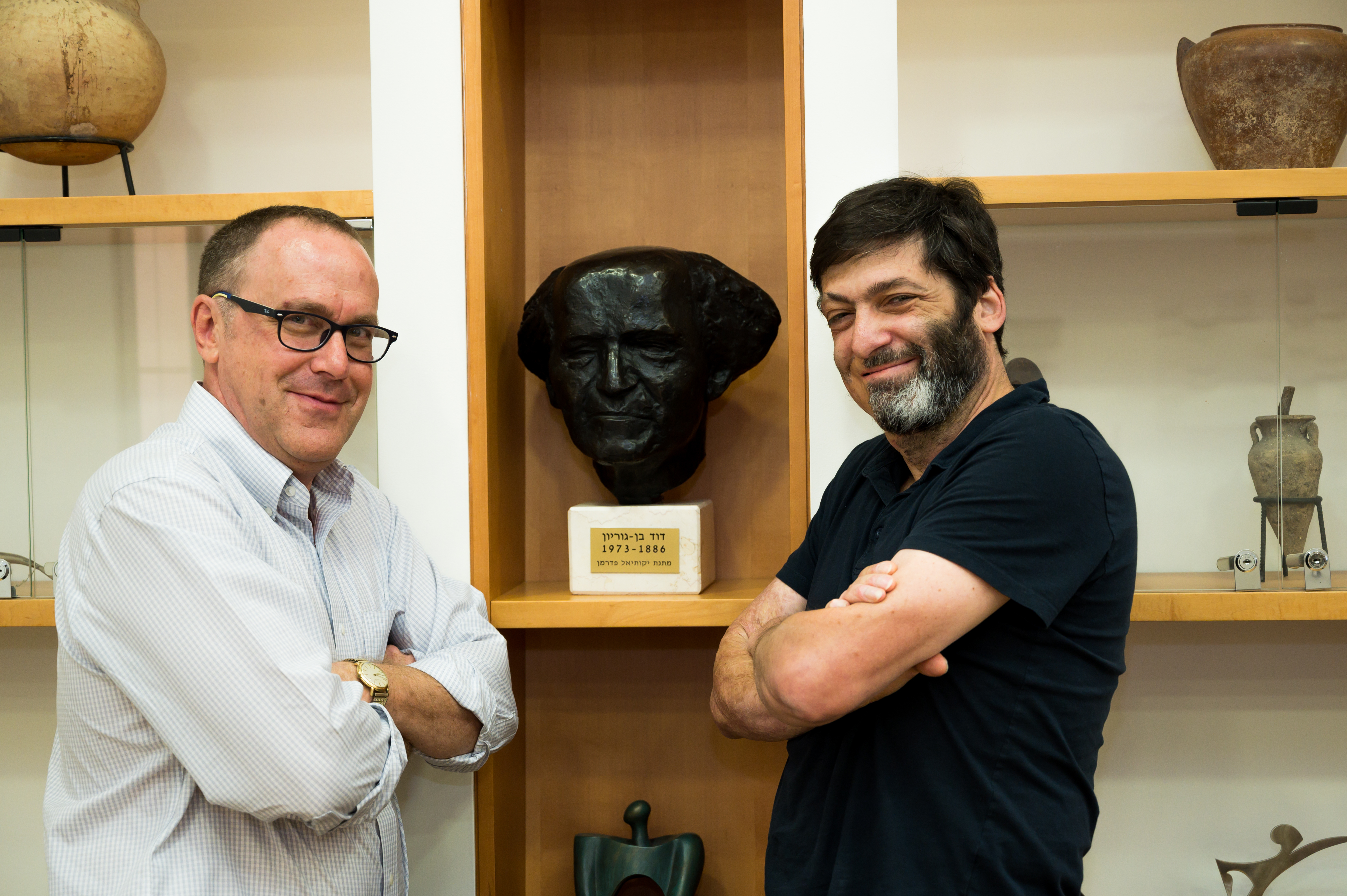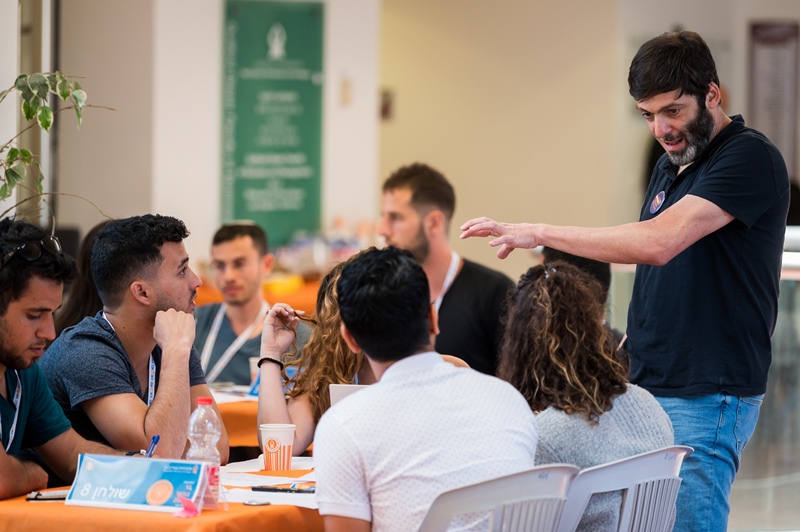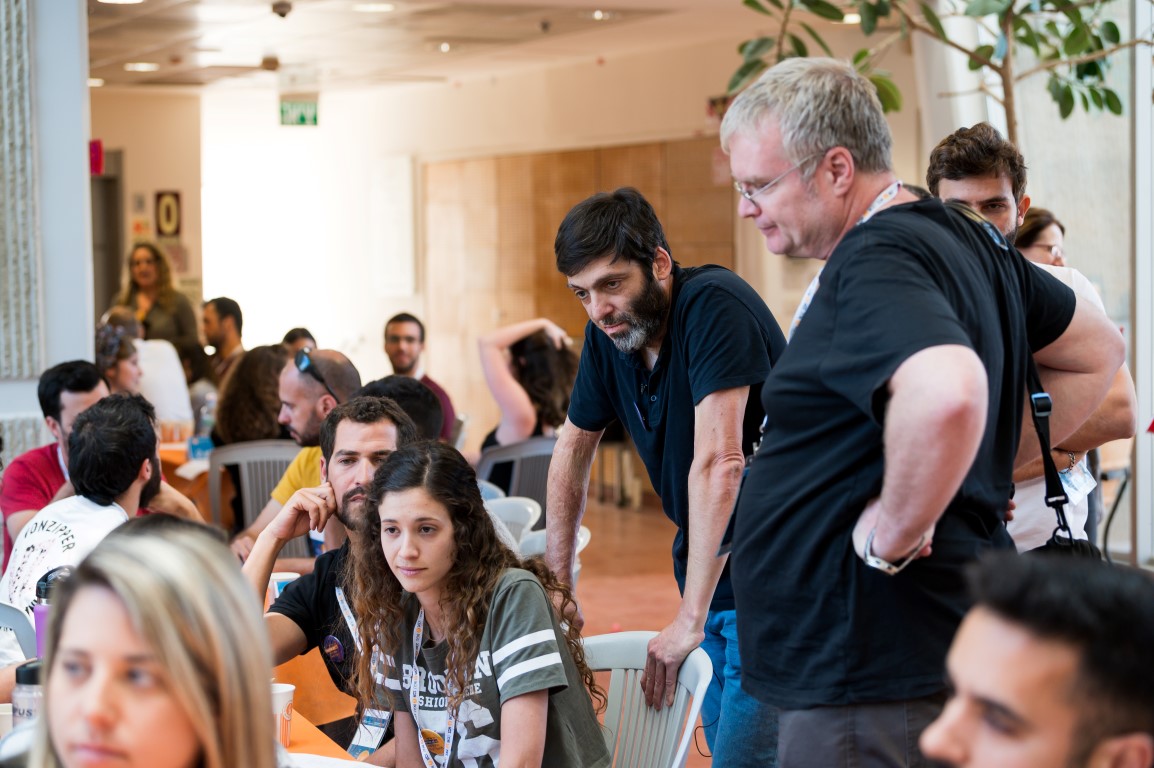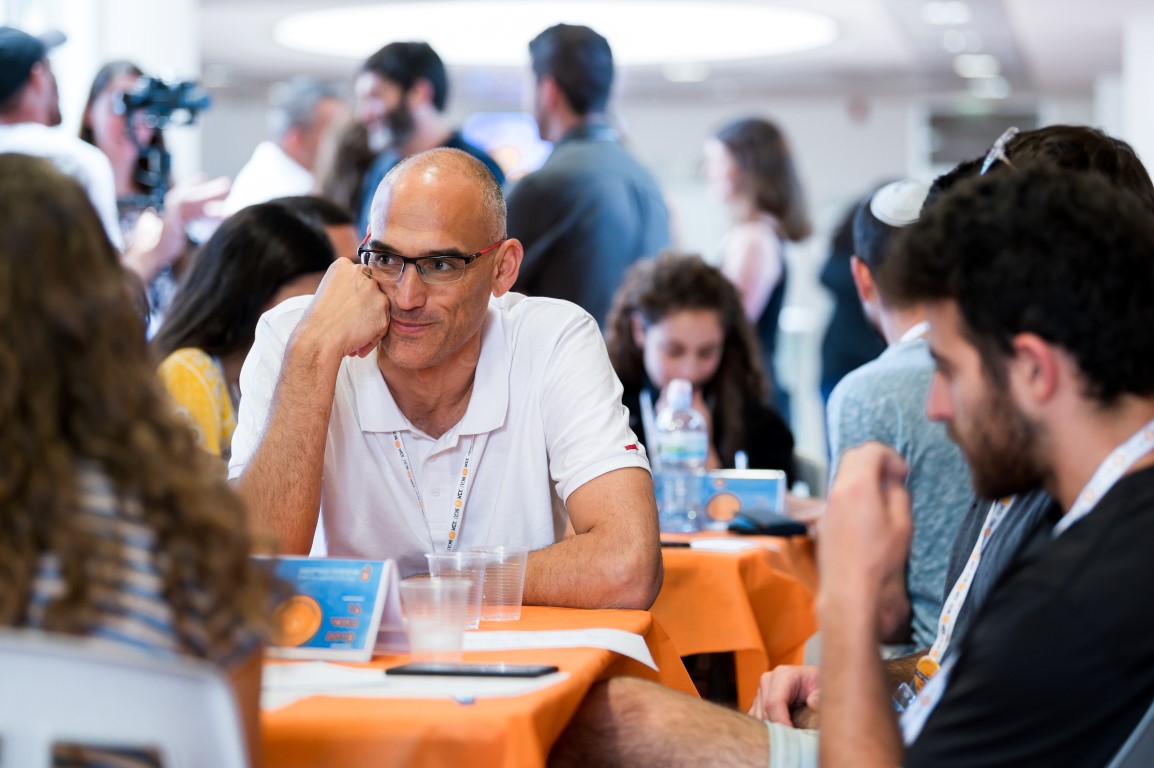How to Make Life Better with Behavioral Economics
BGU President Prof. Daniel Chamovitz, Rector Prof. Chaim Hames and more than 2000 students welcomed Duke University Professor of Psychology and best-selling author Dan Ariely to campus last week for a day-long series of seminars and lectures entitled Tuesday with Dan Ariely: How to make life better with behavioral economics at the Guilford Glazer Faculty of Business and Management.

.jpg)
Above Left: BGU President Prof. Daniel Chamovitz with Duke University Professor of Psychology and best-selling author Dan Ariely
Above right: l-R Prof. Miki Malul, Dr. Mosi Rosenboim, Prof. Dan Ariely, Prof. Rachel Barkan
"Prof. Ariely's activities over the years have helped to improve society through behavioral design," said Prof. Miki Malul, Dean of the Guilford Glazer Faculty of Business and Management GGFBM. “His activities correspond precisely to the GGFBM vision...Think, for a moment, what the impact the manager has on our lives. Management is what guides the organization and society to change responsibly. Management achieves values, and management is what leads social change."
While Prof. Dan Ariely is in demand throughout the world by "presidents and princes," explained Prof. Rachel Barkan, Chair of the GGFBM Department of Business Administration, “he agreed to take a whole day with the BGU students building the future," concluded Prof. Barkan.
Ariely worked with students to create tools for solving everyday problems using behavioral economics, a subset of psychology that studies the processes by which people make economic and psychological decisions. Issues that are relevant to behavioral economists include helping people save money for healthcare or for their children's education, creating environments that help people resist temptation and make wise consumer decisions and ways to achieve long-term happiness.
"The bad news is that people don't act in ways that help them maximize their true potential. The good news is that we can change things and we can create better environments for people that will help them make better decisions," Prof. Ariely told a packed lecture hall.
Prof. Ariely then compared the process of decision-making to shooting a rocket into space. "In order to succeed, we have to do two things – reduce friction and make sure there's enough fuel… Friction is what prevents people from making changes and fuel is the motivation that should be encouraged."
In addition to his public lecture, 75 students participated in small group workshops with Prof. Ariely to analyze every-day problems according to the principles of behavioral economics with an eye on devising creative ways to solve them.

Above: Prof. Dan Ariely with BGU students
"I believe that behavioral economics is the best tool we have to analyze the situation we're in and to think about how to improve," said Prof. Ariely. "The goal of today's events is to teach students new approaches and views about many different issues – the environment, education, politics, nutrition. Behavioral economics can be a terrific tool for us to study together and to learn how to analyze a problem, identify strong and weak points and think together how to make them better."
Guilford Glazer Faculty of Business and Management Dean Prof. Miki Malul said that bringing students together from a variety of academic fields and disciplines to think about was to improve society is an important part of their education. "I believe we must promote the values of social leadership and responsibility, in order to create a better society and in order to train our future leaders," Prof. Malul said. "Our students want to create and to lead. They need the challenges of new, forward-thinking ideas, to try new things and to be creative. Their time with Prof. Ariely will enable them to take another step forward towards realizing these goals as a generation that wants to have a positive impact and to create meaningful change."
"We can use the teachings of behavioral economics to sell products and services and to create economic profits; even more importantly, we can use it to create tools to help people, communities and society as a whole to behave in ways that will be more beneficial for everyone," Prof. Malul added.
At the end of the day, the winning team presented an idea for the "Shokhatan" app - a community application for sharing food products and reducing waste. "The goal of our team was to find a solution for efficient use of resources, by giving, awareness of over-consumption and emphasizing the value of the community," said team member Paz Shpirer, a student of management and economics. "The idea is that when people realize that they have no use of a specific food, instead of discarding it to waste, through the application they can offer it to people in the immediate vicinity." The other team members were Amir Levana (Management and Psychology); Reut Amsalem (Economics); Rachel Peretz (Psychology) and Omer Junger Desta (Psychology).
Shepir also noted that during the event, she received tools in behavioral economics that will accompany her down the road. "Today, with Dan Ariely, it was very interesting, behavioral economics is a fascinating field, and even more so when an exceptional person like Dan presents his research and opinions in this field."
.jpg)

Dr. Daniel Shapira, Prof. Dan Ariely with sutents

Dr. Coby Morvinsky with students
